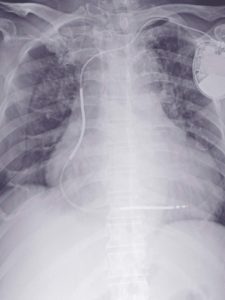
This recent study was conducted by researchers at Cleveland Clinic and involved the analysis of data from more than 1,900 patients with acute coronary syndrome diagnosed by physicians. The results showed that while the incidence of broken heart syndrome was less than 2% among these patients before COVID-19 hit, incidence jumped to nearly 8% during the pandemic.
Interestingly, none of the patients who were diagnosed with broken heart syndrome tested positive for COVID-19, demonstrating that the stress caused by this pandemic is not limited to those who are infected with the virus. The authors interpret these data to mean that people need to be paying attention to how they feel during the pandemic and seeking help if they are unwell. They also urge people to engage in self-care during times of extreme stress.
As the authors point out, it is also important to look at the effect of the virus on broken heart syndrome in other parts of the country and the world. More research is needed to determine the specific relationship between the COVID-19 pandemic and broken heart syndrome and to identify any specific interventions that could help mitigate the impact of the added stress of the pandemic on those whose health depends critically on keeping stress low.
Reference
Jabri, A. et al. (2020). Incidence of stress cardiomyopathy during the coronavirus disease 2019 pandemic. JAMA Network Open, 3(7), e2014780.
